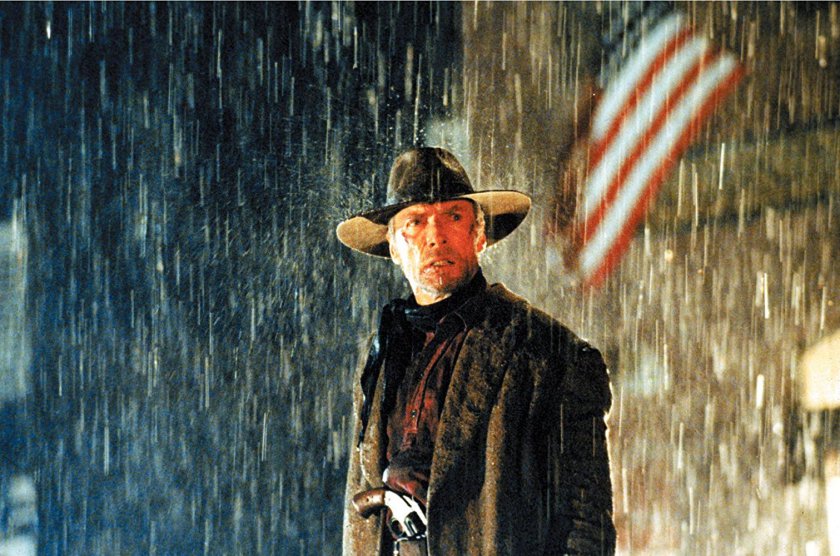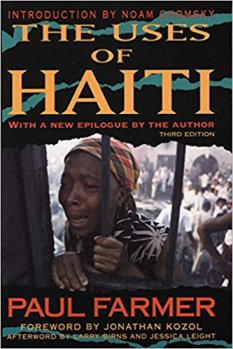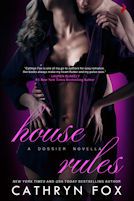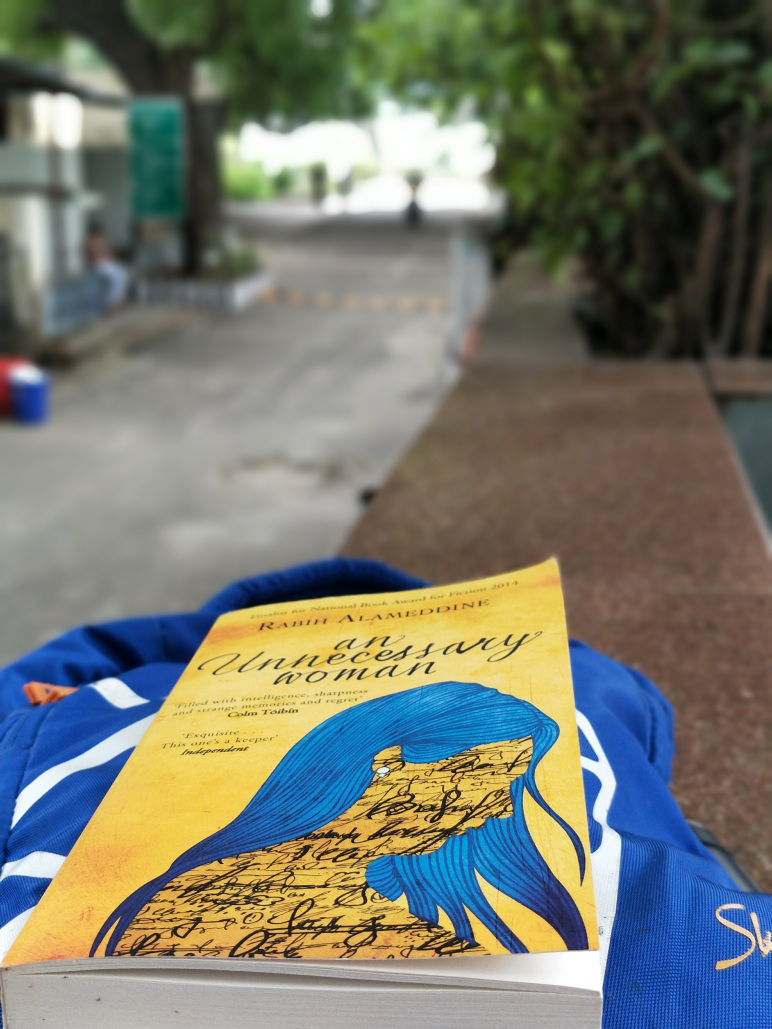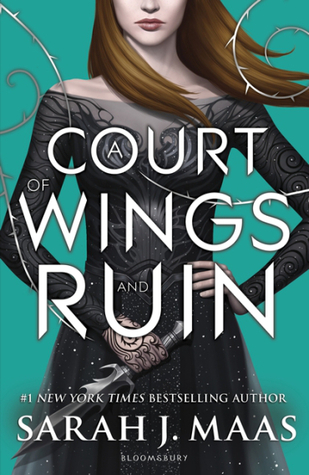By Patrick Ehlers
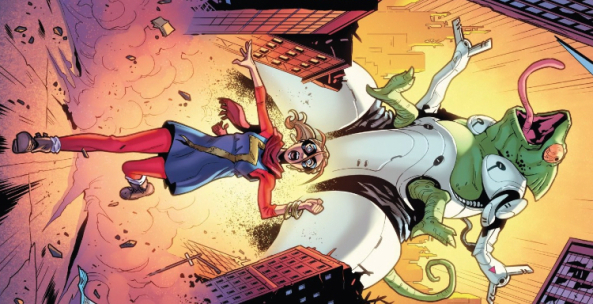
This article contains SPOILERS. If you haven’t read the issue yet, proceed at your own risk!

Kamala Khan is such a good kid. She get’s these stretchy-growy-shrinky superpowers and the very first thing she does is try to protect the vulnerable people in her community. Of course, that doesn’t mean helping impoverished families navigate the SNAP program or helping people with job placement or anything like that — it means punchin’ bad dudes with her temporarily over-sized fists. It’s an inspiring thing, both to read and for the characters within Kamala’s orbit. Issue 26 continues the ‘Teenage Wasteland” story arc by showing us just how thoroughly Kamala has inspired her friends to act as nobly and selflessly as she did when faced with roughly the same threat.
Of course, the difference is that Zoe and the rest of the Kamala Korps (I know no one is calling them that, but let me have it!) do not have super powers. I love this as a real world analogue for how regular people are supposed to deal with societal problems. We see all kinds of heroic stances on in the media (both social and otherwise) that may embolden us Joe Schmoes to speak up next time we witness some kind of injustice in the world. That’s what women like Rose McGowan helped do for the #MeToo movement: raise its visibility, and sort of give the general population permission to address the issue. I’m oversimplifying, of course, but it’s fascinating to track how McGowan’s status can protect her now in ways that non-famous women who are speaking up are not protected. That’s Kamala: she was certainly courageous when she stood up for the kids being exploited by The Inventor, but at least she had her powers to protect her. Like the women and men empowered to share their own #MeToo experiences, Zoe is herself vulnerable.
Writer G. Willow Wilson and artist Nico Leon demonstrate this actively, pairing Zoe with a senior citizen sidekick, and repeatedly drawing attention to the fact that Zoe doesn’t have super powers (“Don’t you have lighty-uppy powers or something?” “No, that’s the other Marvel.”). And because it’s Leon drawing these two, it’s adorable:
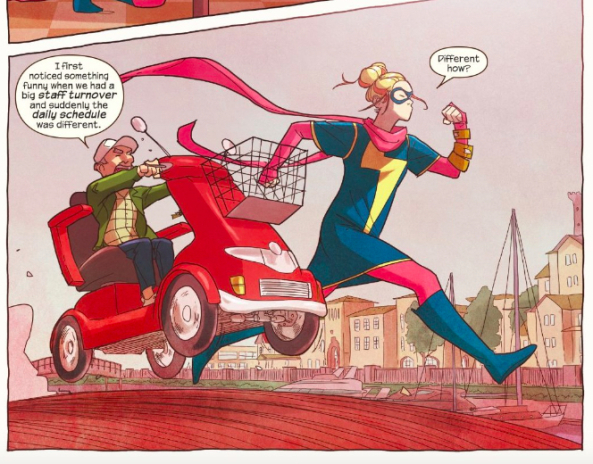
I love how much their limitations are highlighted here — Harold has problems with mobility and has to use a scooter to get around, and Zoe’s in that now-classic Mr. Marvel pose, only her legs aren’t elongated to cover more ground quickly. It’s a cool visual cue that plays off the reader’s very specific expectations of the character.
So good on Zoe and Harold for putting themselves in harms way without a superpowered safety net. The end of the issue suggests that Wilson really believes the strength of the common man is in their numbers, as the remaining members of the Kamala Korps team up with the Red Dagger to rescue their friend. That’s where inspiration comes from: not the most power among us, but from the most vulnerable.

The conversation doesn’t stop there. What do you wanna talk about from this issue?
Advertisements Share this: